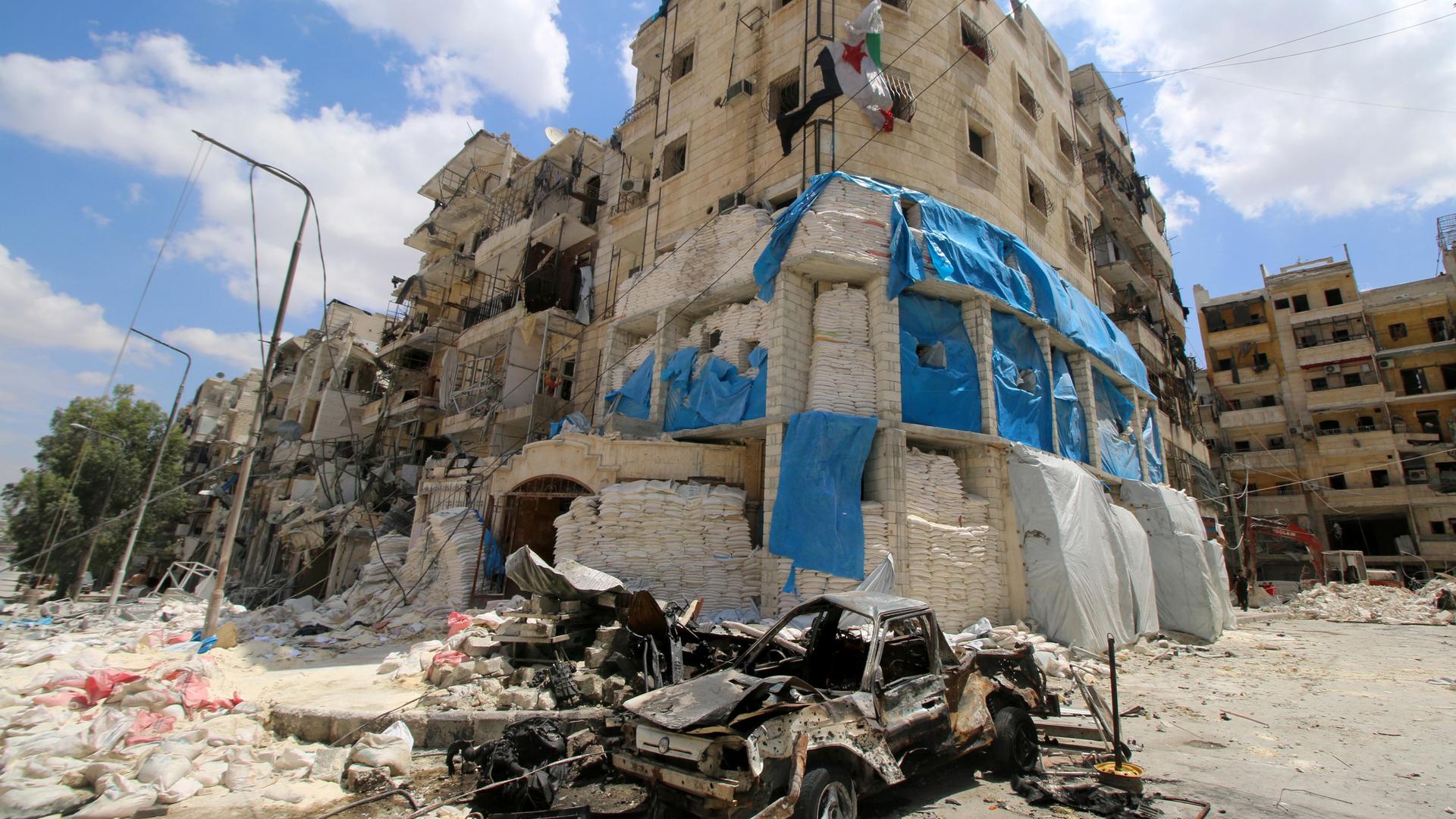UN reminds members not to kill doctors
Burnt vehicles in front of a hospital hit by airstrikes, in a rebel-held area of Aleppo.
The United Nations Security Council has passed a resolution reminding its members that deliberate attacks on medical facilities are war crimes. The resolution comes after a spate of such attacks in Syria and elsewhere.
The Council heard an impassioned plea from Joanne Liu, the president of Doctors Without Borders, also known by its acronym in French, MSF.
"This resolution must lead to all state and non-state actors stopping the carnage. You must also pressure your allies to end attacks on health care and population in conflict areas. We will not leave patients behind, and we will not be silent. Seeking or providing health care must not be a death sentence. You will be judged not on your words today, but on your actions."
Liu called it “an epidemic,” and that “hospitals and patients have been dragged onto the battlefield.”
Liu said the council is charged with protecting international peace and security yet four of the five veto-wielding permanent members — the US, Russia, Britain and France — “have, to varying degrees, been associated with coalitions responsible for attacks on health structures over the last year. … These include the NATO-led coalition in Afghanistan, the Saudi-led coalition in Yemen, the Russia-backed Syrian-led coalition.''
UN Secretary-General Ban Ki-Moon added his own view, saying that “when so-called surgical strikes end up hitting surgical wards, something is deeply wrong.''
The resolution was passed unanimously.
Speaking the next day, Liu was asked how confident she was that the resolution would stop the attacks on hospitals and will it launch investigations of those that happen.
“Well,” said Liu. “Confident would be a big word. I think what we got yesterday is what I would call the beginning of a journey.”
“We’ve basically done the easy step, which is passing a resolution,” she added.
But she says the resolution has clearly established a landmark. “Now that the UN Security Council has reaffirmed the state of play, in terms of what is protected and what we need to safeguard, then we have a reference point.”
International Committee of the Red Cross has published a study that found that in the three years 2012 to 2014, there were 2,400 attacks against patients, health personnel, medical facilities, ambulances and other medical transports in just 11 countries. That's more than two attacks per day.
Liu also criticized the US decision not to prosecute service members involved in the destruction of an MSF hospital in Kunduz, Afghanistan, last October. The attack left 42 dead. Sixteen US personnel have been disciplined, but the Pentagon found the attack was not deliberate therefore not a crime.
Liu said “perpetrators should not be judge and jury” and reiterated MSF’s call for an independent investigation.
Every day, reporters and producers at The World are hard at work bringing you human-centered news from across the globe. But we can’t do it without you. We need your support to ensure we can continue this work for another year.
Make a gift today, and you’ll help us unlock a matching gift of $67,000!
